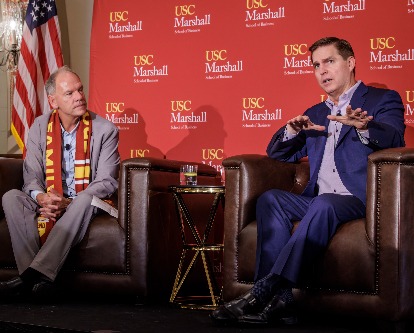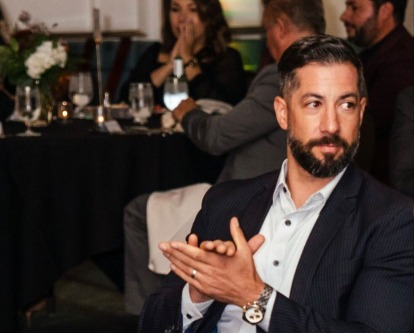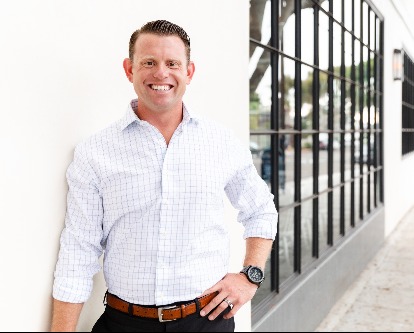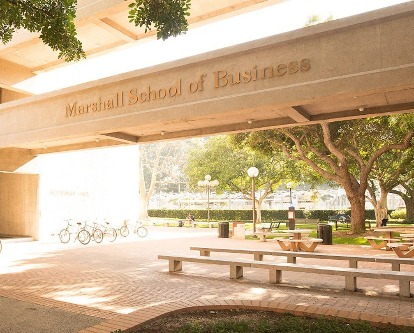
Jason Tran, assistant director for Undergraduate Career Services remembers well his feelings of uncertainty as he navigated UCLA as a first-generation college student.
So when Undergraduate Career Services leadership determined that the time was right to launch a program targeting the one in five—approximately 800—Marshall students who identify as “first-gen,” he eagerly agreed to help head up the efforts.
“I felt like I was coming full circle,” he said.
Extending an extra hand to this particular population of students has become increasingly important as the Marshall School broadens its student body.
“Educating first-generation students is part of our mission here at USC Marshall,” said Ramandeep Randhawa, vice dean for undergraduate programs and professor of data sciences and operations. “The ability of such education to transform society is unparalleled. I have personally witnessed it as my father was a first-generation student.”
The First on a Campus
First-generation students are those whose parents did not attend—or did not graduate from—an institution of higher learning. As Tran—and Vice Dean Randhawa—both know, first-gen students face distinct challenges when navigating opportunities that students whose parents did graduate may take for granted.
For example, first-gen students may be unaware that USC offers career services through an entire team of professionals whose job is to ensure that every student has the opportunity to develop career readiness skills necessary to navigate internships and job searches and position them for success post-graduation. Marshall Undergraduate Career Services does more than simply help write resumes and prepare for networking and interviews; it provides opportunities for students to engage with employers and alumni and the means to connect to employment opportunities.
“I was in my last year of college before I’d even heard of career services,” said Tran. “We’re here to make sure that doesn’t happen for Marshall students.”
“Our first-generation Marshall and Leventhal students have worked hard to get here,” said Undergraduate Career Services Director Onma Lwin. “We want to make sure that our students know we’re here for them and to encourage them to take advantage of all the resources available to them.”
There are other distinguishing features between first-gens and other students. Many first-generation students don’t realize that attending college is much more than just getting good grades, for example.
“They focus on the academics, which is important,” said Tran. “But doing well in courses is just one piece of the puzzle.” Joining student organizations, developing leadership and communication skills, building a personal and professional network, and gaining internship experience is what makes the student stand out, he said. “During their Marshall journey, students need to work to build out their resumes.”
First-gen students may feel like they don’t have the same advantage as those students whose parents went to college, maybe even to USC, who can pick up the phone to call personal and/or alumni contacts for internship and job opportunities.
“We’re here to tell them no, you are Trojans. You have the same network as everyone else does,” said Tran. “Through your peers, your professors, your mentors; you are very much part of the Trojan Family.”
Inside Information
Called the First-Generation Initiative, the new program aims to answer a wide-range of questions: How does one explore different career paths? How do you conduct research on a potential employer? How do you prepare for an interview at an entertainment company vs. a finance firm? What is considered appropriate business attire?
“Our newly launched program offers career resources and first-gen alumni panels to answer all of these questions and more,” said Tran. “We have career services sessions tailored to upper classmen, those about to graduate, and underclassmen, just beginning their Marshall career. The underlying key to the success of these efforts is to have open and honest conversations.”
“We want all of our students to succeed,” he said. “But as a first-generation student myself, I know personally that if weren’t for my mentors, I wouldn’t be here. So it is an honor and a mission for me to help other first-gen students succeed.”




